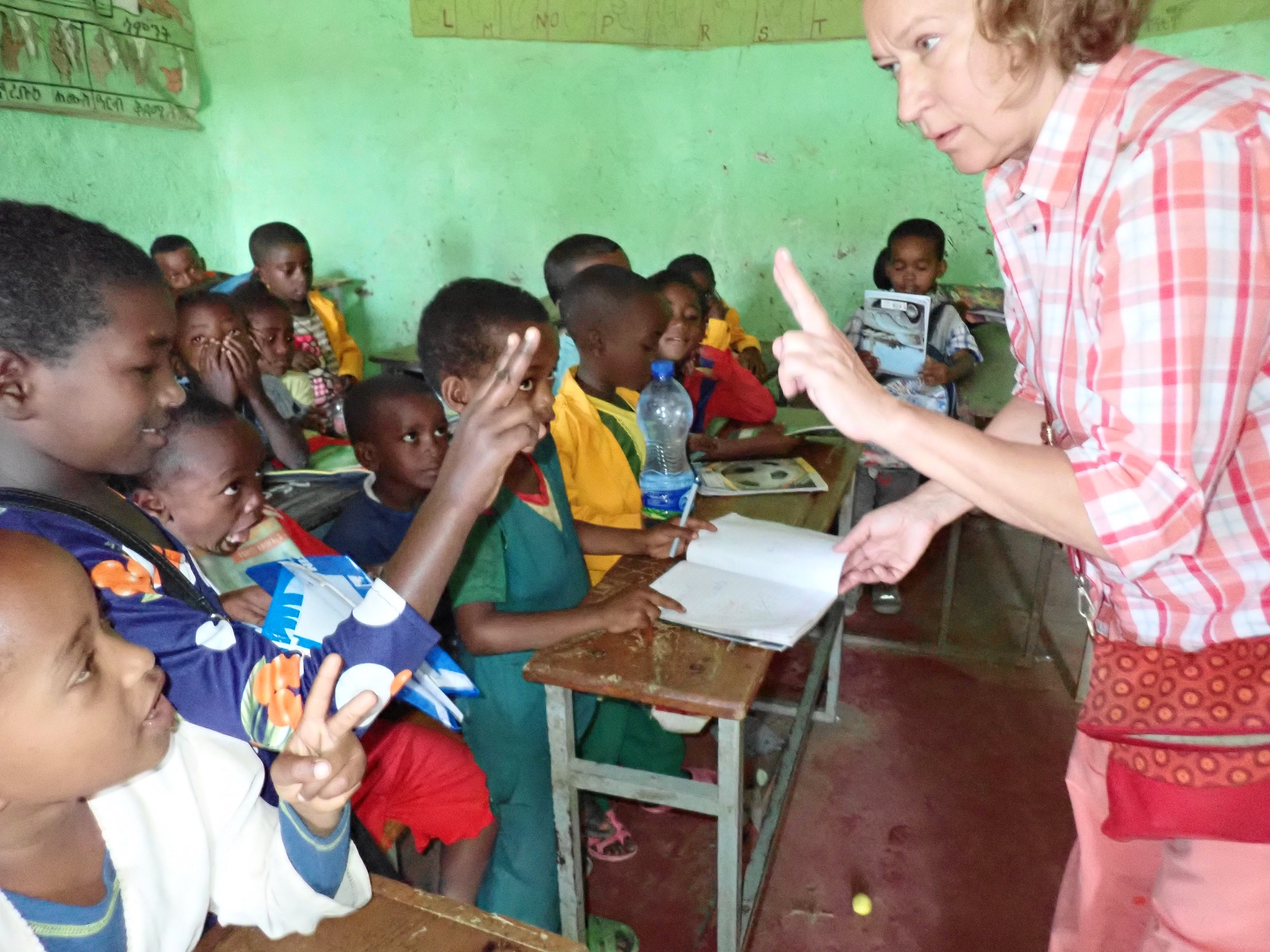Education should not be a privilege — everyone has the right to education
Sai Väyrynen, Senior Specialist in the education sector at the Finnish Embassy in Ethiopia, works to ensure education for all. Three questions about development cooperation is a series of interviews with specialists from the Department for Development Policy.

1. Why do you want to promote education?
Education – and learning above all – is the foundation of all development. Everyday life teaches us many things that are important for coping, but education makes it possible for us to put things that we experience, learn and see in a larger perspective and to use them for our own growth and for developing our environment.

during a school visit in the city of Semera.
Photo: Sai Väyrynen
Education promotes equality in society, but the cause and effect relationship is not that straightforward. General education that is common to all creates a foundation for knowledge, skills, values and norms, which help individuals to contribute their input in society. However, this requires interaction, enthusiasm, respect for individuals, appreciation of different backgrounds, knowledge and experiences, commitment and the joy of learning. American author and social activist bell hooks (pen name for Gloria Jean Watkins) has said: “As a classroom community, our capacity to generate excitement is deeply affected by our interest in one another, in hearing one another’s voices, in recognizing one another’s presence.”
At best, educated people are respectful, cultured, innovative and empathic; they know themselves and their responsibilities and obligations as individuals and members of their community. Such people are not fooled by nonsense.
Over the years, I’ve seen how the Finnish comprehensive school has opened up opportunities for gaining a good education for many people of my generation regardless of socio-economic status. I have also seen how, for example former dropouts have discovered new avenues from flexible educational paths, and how lifelong learning has helped middle-aged or senior citizens thrive.
Educations should not be a privilege but everyone should have the right to education. As a Finn and a person who has received education mainly in Finland, I am privileged by global standards. Therefore, I want to work to help others exercise this right.
2. What accomplishment in the promotion of education has made you happy? What discourages you?

One of the church entrances resembles the map of Ethiopia.
Photo: Leo Pekkala
I am happy for each child and youth who goes to school and completes their education. I am also happy for the increasing number of people with disabilities, children with special needs and children living in difficult conditions who get access to education. I am inspired by teachers who develop their pedagogical skills and by students who find their own path after basic education.
For me, successful development cooperation means such progress that we can observe in everyday life: a well-functioning system that supports learning; a correct number of textbooks arriving at the right time and in the right place; the joy of learning and teaching; and appropriate learning environments. These are not achieved without well-functioning structures, competent and motivated people, and reasonable resources. I am particularly proud of the 300 inclusive education resource centres that have been established in Ethiopia in the past two years with Finnish technical support.
The original idea was that the resource centres would reach 12,000 people with disabilities and children with special needs in two years. What happened was that the resource centres together with the public schools operating with them reached more than 40,000 children with disabilities and pupils with special needs. When the support is available at school, the barriers to learning and school attendance can be reduced more effectively.
My career of 30 years in teaching and education probably shows that nothing brings me down. I get frustrated at times, of course — for example, when we fail to create sustainable structures for the organisation of education, when a group of pupils is discriminated against, or when people deny the many mechanisms that uphold inequality in education systems. We should not give ground to frustration but use it as a source of new inspiration and solutions.
3. What would you like to say to those who consider that it is impossible to resolve the learning crisis?
The learning crisis is not the Hodge conjecture but a problem created by humans. I think that the expression ‘learning crisis’ is not right. It puts the blame for poorly functioning systems on individuals. Education systems are among the products created through decision-making in society and targets of exercise of power, which do not change disconnected from the rest of the surrounding society. The educational crisis would be a better term.
My own experience tells that the educational crisis cannot be resolved through any single means. The solutions come from developing societies, building a common vision, and engaging in long-term work.
